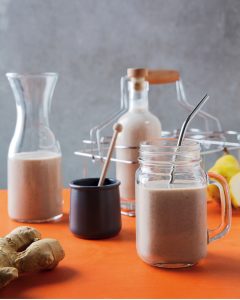Every person has their own, unique relationship with coffee. To some it’s their morning wake-up call, to others it’s a friend enjoyed in good company, while others see it as their relaxed companion exuding warmth for the soul. No matter your connection, when and how much you drink may influence aspects of your life that your sleepy, coffee-staved body never even realised.
By Jana du Plessis
THE GOOD, THE BAD AND THE TRUTH
Whenever there’s talk about coffee or tea being the healthiest, tea usually wins the fight. But is that to say that coffee is unhealthy? Studies have shown that coffee plays a role in reducing inflammation, oxidative stress and HDL cholesterol (the bad one). Our favourite brew has also been linked to preventing certain types of cancer, helping regulate blood sugar levels and, as we know too well, increase mental as well as physical capabilities. With all this in mind, it’s easy to motivate our need for that second cup, but don’t be too quick to pour that second hit of caffeine – you might not need it as much as you think.
EACH TO HIS OWN CUP OF COFFEE
Every person’s DNA, body composition and, most importantly, metabolic processes are individual. This means that the way one person reacts to a cup of coffee is radically different from the person next to them. In some cases, coffee can alleviate feelings of depression and in others increases stress and anxiety. There’s also the link between restless sleep or difficulty sleeping when having a cup or three throughout the day, leaving you more tired than before and completely counteracting its use in giving you an energy jolt. It’s all about tuning into how coffee affects you on a daily basis and adapting your caffeine-drinking habits accordingly.
TIPS AND TRICKS OF THE COFFEE TRADE
If you find that your body struggles when drinking too much coffee or you simply want to cut back on your consumption (remember that too much of anything – even the good – can become harmful), there are a few things to keep in mind:
1. Limit your coffee intake to one cup per day and try to have it no later than 3 pm, but restricting it to only in the morning is even better.
2. Choose good-quality coffee. Not only are some coffee crops sprayed with pesticides which can be damaging, but having one quality cup will reduce cravings for another one later on.
3. Avoid adding sugar and creamer. Sugar will raise blood sugar levels before causing them to crash down and induce unhealthy cravings and snacking which could lead to weight gain and lethargy. Just add a splash of milk and limit your sweetener to ½–1 tsp of sugar, honey or some stevia if you must.
4. Assess whether you really need the energy. Are you craving coffee because you haven’t eaten enough and are experiencing a drop in energy? Or do really want to have the taste of coffee? Sometimes a healthy snack like fruit and nut butter or a slice of toast with avo on will provide you with the slow releasing energy you need to fuel you for your afternoon workload.
5. Avoid coffee with acid reflux. Yes, coffee is acidic, but our bodies are wonderfully designed to manage the acid/alkaline balance in order to not be thrown out of whack. However, with that being said, when suffering from acid reflux or heartburn it’s probably best to eliminate coffee for a few weeks to see if your symptoms subside or reducing your intake to only half a cup a day.




